"This isn't tennis club rosé," says Paul Chevalier, vice president of Château d'Esclans. We are gathered to taste two verticals of the estate's famous - and famously highly-priced - rosés Les Clans and Garrus.
They may not be fit for the tennis club, but seemingly they are the perfect fit for the private members' club, as the tasting is taking place in one of the dining rooms of exclusive Mayfair club Annabel’s (dress code: no hats, no Lycra, no heavily branded clothing; etiquette code: no photos; sub-text: no riff-raff).
Obviously everyone broke the rules on the photos, if only managing a quick pap-snap when no-one was looking. You can't expect a room full of excited, slightly tipsy British journalists not to break the rules.
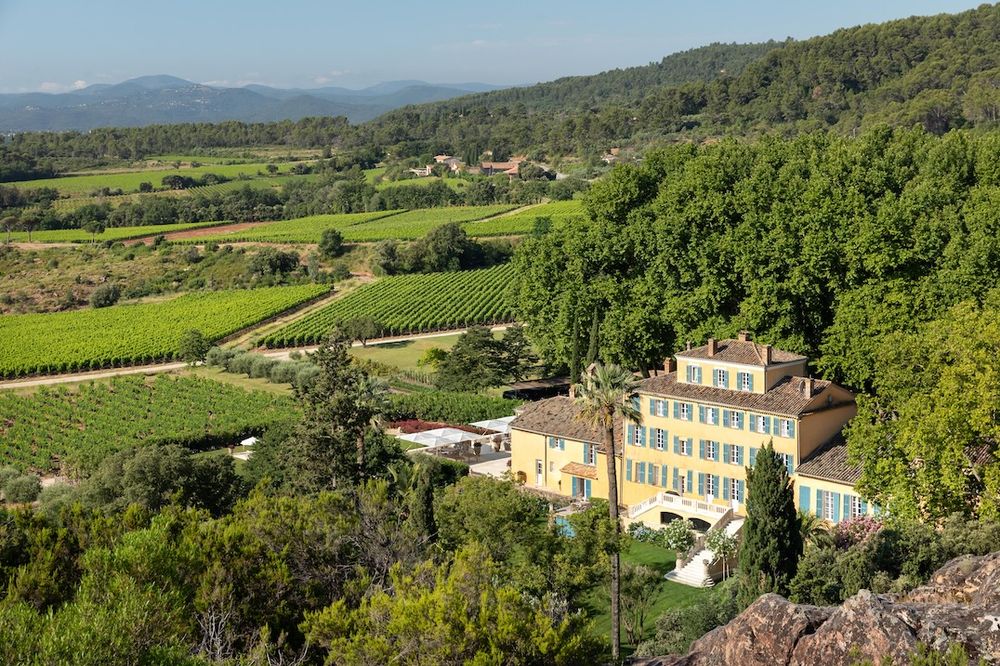
Sacha Lichine bought Provence estate Chateau D'Esclans in 2006
Château d'Esclans is best known for the sensation that is Whispering Angel, a global Provençal rosé brand that’s loved by everyone from Lady Gaga to The Beckhams, and sets you back £22+ a bottle off the supermarket shelf, and probably the same by-the-glass at the Pacha Ibiza or wherever it’s served.
Whispering Angel is made from “98-99% purchased fruit” and the current annual production is 10m bottles. It’s a pink-hued success story on a par with Barbie, and, off the back of Whispering Angel, Chateau D'Esclans has cemented its rosé reputation and been emboldened to push into the ultra-premium rosé market with its estate wines Les Clans and Garrus; both are small production wines made from 100% estate fruit.
"We're not trying to change the world,” says Sacha Lichine, the brains behind the brands, who acquired Château d'Esclans in 2006. ”We're just saying that rosé can be fine wine if you want it to be. We are trying to make the category better and better."
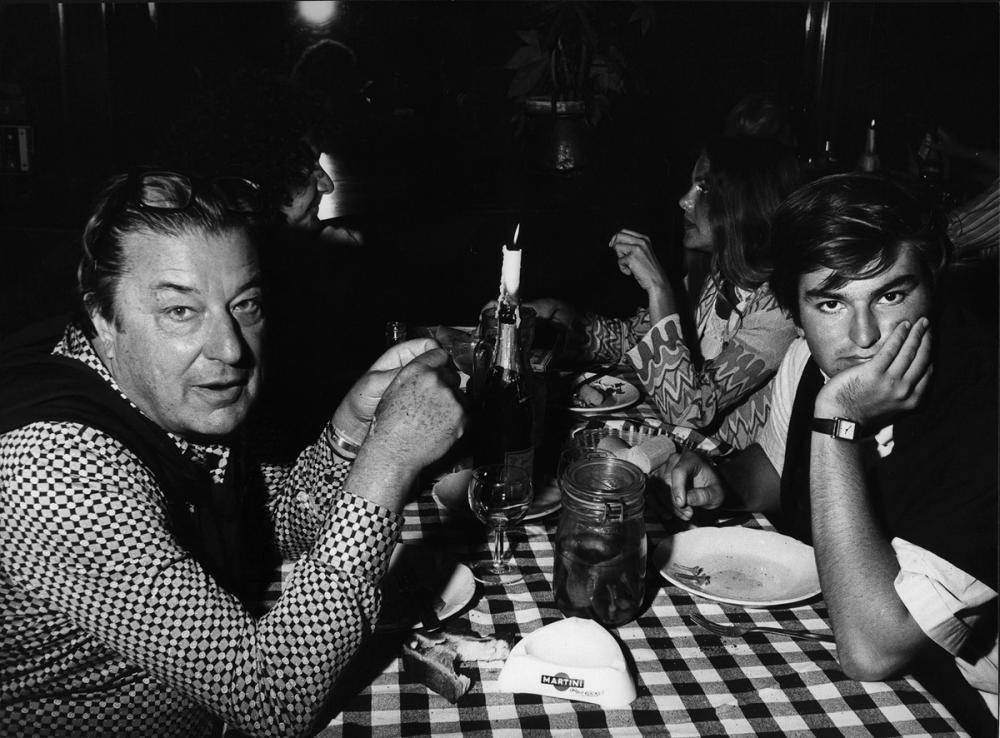
A young Sacha Lichine with father Alexis - Sacha started running family-owned Prieuré Lichine at the age of 27
During the two hour lunch, Lichine punctuates every moment with brilliant one-liners like these; he has a snappy headline-grabbing response to every question asked and brushes off any comments he doesn't agree with.
"Quality is what sells, not appellation anymore,” is one such remark. “Women have driven this category,” is another. The best though is “no risk, no fun,” and it’s this one that rings very true as Lichine sold a Bordeaux Château to get into Provençe and ignite the premium Provençal rosé revolution.
When he bought d'Esclans almost 20 years ago the estate was improved and upgraded, from the vineyards to the cellar. It’s now owned by LVMH, and has Bertrand Leon’s (son of original consulting oenologist Patrick Leon) steady hand on the winemaking tiller.
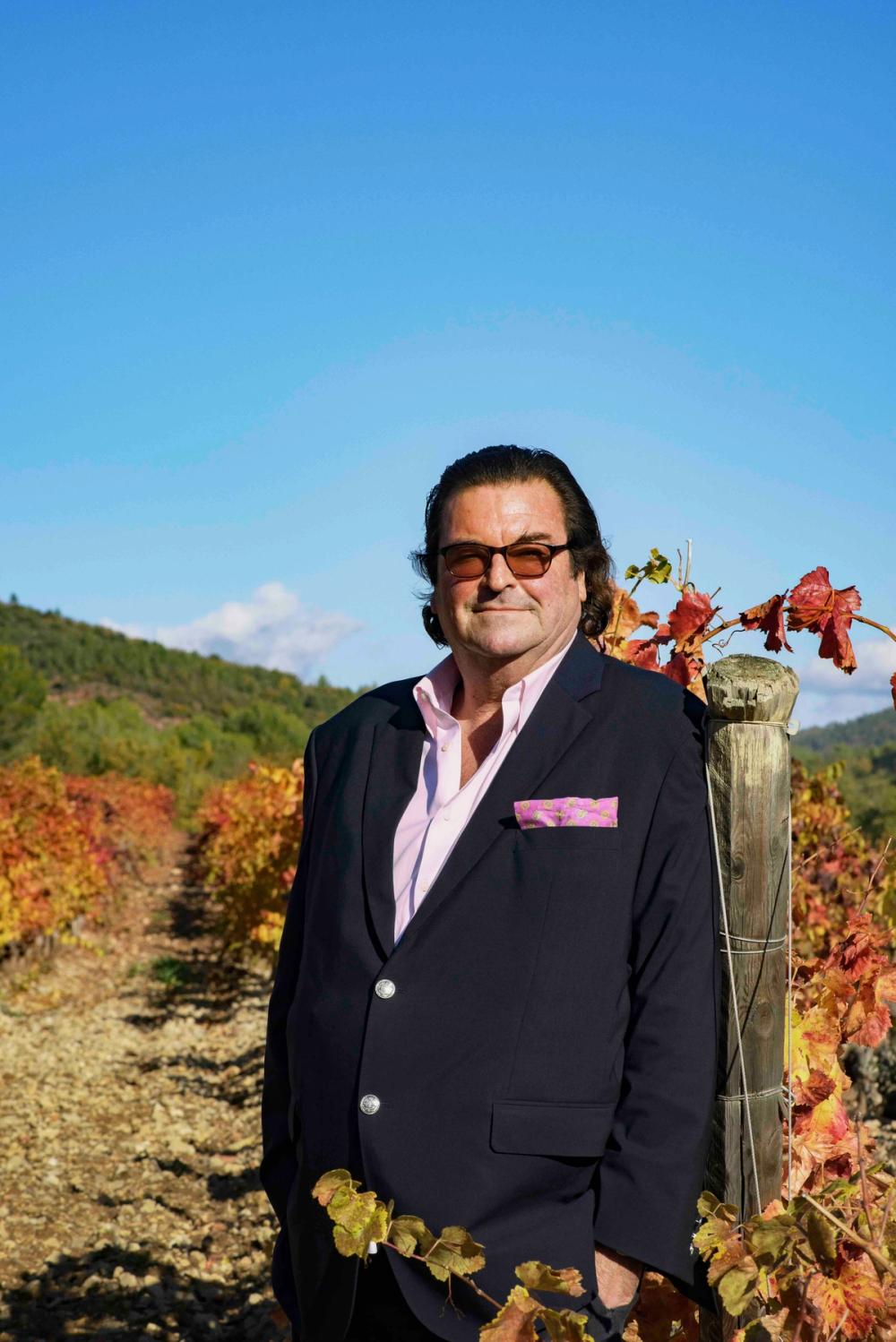
"We are closer to a spirit brand than a wine brand.” Sacha Lichine
Both wines are made from Grenache and Rolle (Vermentino) ‘roughly’ in a 70/30 per cent ratio. Other grapes are grown on the estate, such as Syrah and Cinsault, and used in other rosés, but Syrah is too candied and Cinsault adds nothing, it just bulks things out, or as Lichine puts it, "makes more sauce". No sauce in the top wines.
Both Les Clans and Garrus are made from hand-picked fruit, harvested in the cool of the morning, then the grapes are cooled again before pressing in an inert closed-circuit press to avoid oxidation. 85-90% of the juice for the wine is free run, so it flows gently through the skins in the press, hence the light colour. At harvest time “it’s a race against oxidation,” says Lichine.
So far, so Provençal rosé… but it’s at the next step where the rulebook is ripped up. Fermentation in steel is the usual practice here, and that’s the Whispering Angel way, but Les Clans and Garrus are both fermented in barrel, specifically 600L French oak barrels each fitted with a cooling rod to regulate the temperature.
The wines are aged for around 11 months in oak, which is much longer than for most rosé wines; this prolonged time in oak adds texture and structure to the wines, and - in some - a touch of creaminess.
“You never want to taste wood, you want it to just create an extra layer of complexity to make it longer in your mouth and on your tongue, and that’s all that we’re using wood for,” says Lichine. “The wine has to deserve the wood as well so the yields are low,” he adds. The vines for Les Clans, for example, are 50-70 years of age and the Garrus vines a little older, both low-yielding. Garrus sees a little more new oak than Les Clans.
"Doing it this way we create a wine that is richer and fuller and has more vigour,” says Chevalier. “The simplicity of fruit becomes more complex. The idea of ageability comes into play when the wine is made in this way.”
Many of the wines start like a white and finish like a red, these are complex rosés, and they fit wonderfully in a gastronomic context, which is probably what Chevalier was getting at with his tennis club remark. Both Les Clans and Garrus deserve a little more attention than most of the quaffable Provençe rosés on the market, and given the price tags (north of £100 a bottle for many of the vintages below) you certainly expect something more.
"We are closer to a spirit brand than a wine brand,” says Lichine, reeling off another juicy soundbite, and that’s spot on. Both with Whispering Angel and with these ultra-premium wines you are paying for more than what’s in the bottle, it’s a lifestyle you’re tapping into, a signifier of success and good taste.
And so to the wines
Below you’ll find some brief notes on the verticals of the two wines. On the whole there was a stylistic balance between them, across the two cuvées, but Garrus was slightly richer and creamier, Les Clans more fruit-forward.
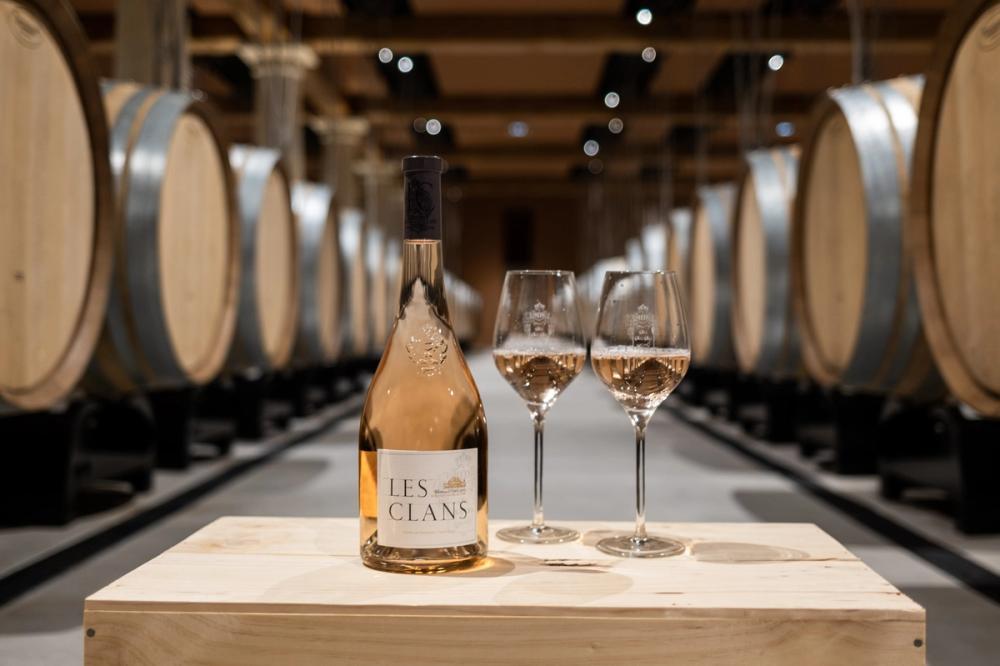
Les Clans 2023
Full in the mouth, weighty. Raspberry fruit with a herbaceous edge. It has the aromatic intensity of a warm region white wine. You can certainly 'feel' the 14% ABV. “A very good vintage, one of the best we’ve ever had in Provençe,” says Lichine.
Les Clans 2022
Softer, more rounded. Again aromatic, but the fruit here is red cherry and pomegranate. Some mineral notes around the edges.
Les Clans 2021
More mineral, oyster shell even. Freeze-dried raspberry this time, crisper. Lovely delicacy and sweetness of fruit. Tasted from double magnum.
Les Clans 2020
Suave, smooth, ripe, Feels less 'red' than the others. The accents here are floral and tropical, pineapple. Some herby notes too. Tasted from magnum.
Les Clans 2017
This has aged well. More woody and savoury than the rest of the flight, but remains fleshy and full. Still fresh and immediate with good acidity. These are generous wines.
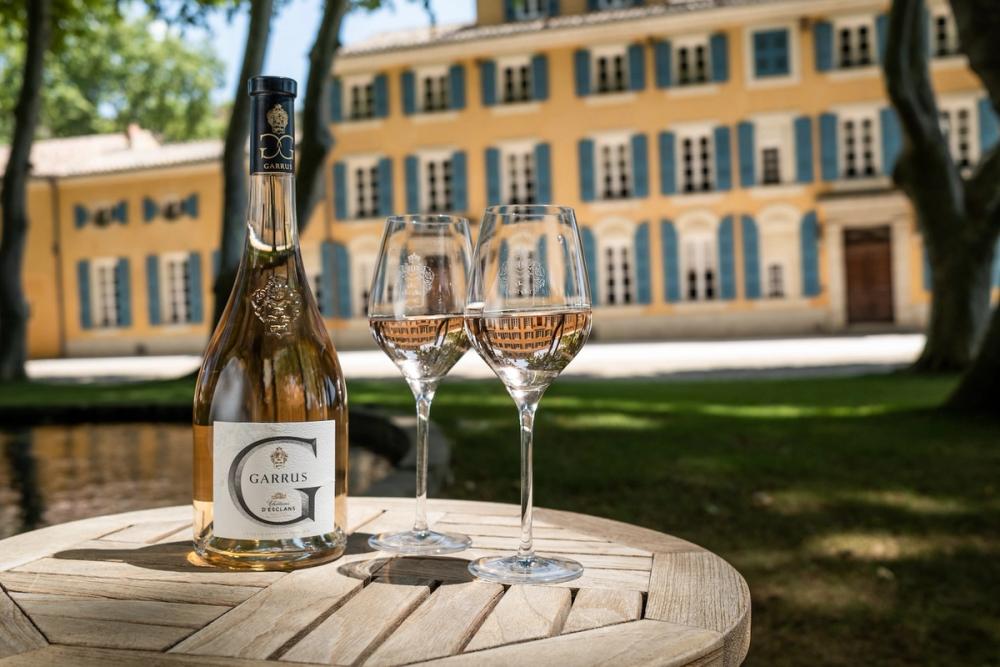
Garrus 2023
Bright and lucid with raspberry and almond notes and a crystalline tension. Elegant and as classy as you can imagine. Rich.
Garrus 2022
Generous, weighty. Lingering red fruit. Hefty alcohol at 14.5%! Definitely not to drink while playing tennis.
Garrus 2021
More like a white wine than any of the others. Yellow peach, flint and a mineral backbone are the key takeaways. Delightfully full finish with a smidge of oak creaminess.
Garrus 2020
Tasted from magnum. Muscular and punchy, a powerhouse pink. White pepper spice, toasted nuts and herbs all dance merrily along beneath the primary fruit notes of ripe peach and raspberry. Bold and serious.
Garrus 2017
Spicy and opulent with red berry fruit and a delicate acidity, still balanced after all this time. Proof, if needed, that rosé can age, and age well. Tasted from magnum.






























